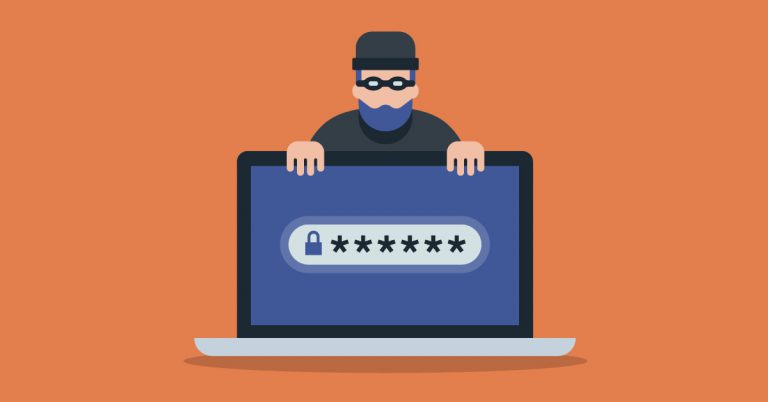With the rise of digital transactions and online activities, scammers are constantly devising new tactics. As online scams, especially e-commerce scams, continue to grow, protecting yourself with Personal Cyber Insurance is more important than ever.
As of mid-2025, Singapore continues to grapple with a significant surge in scam activities, with over 16,500 reported cases resulting in losses exceeding S$427.2 million. E-commerce scams in Singapore remain a prominent concern, including concert ticket fraud and fake listings on platforms like Facebook and Carousell that lead to financial losses and disappointment.
Don’t want to become a part of that statistic? Here’s a list of common e-commerce scam in Singapore to avoid.
1. Online shopping scams
The most common type, this e-commerce scam involves fraudulent sellers on online marketplaces. (Did you know 60% of e-commerce scams occurred on Shopee and Carousell?).
In December 2024, scammers posing as buyers on Carousell and Facebook Marketplace defrauded at least 877 individuals, resulting in losses exceeding S$830,000. Victims were tricked into providing banking details through spoofed websites, leading to unauthorised transactions.
There has been a rise in listings for high-demand items such as electronics and fashion goods at unusually low prices. After payment, buyers receive counterfeit or substandard products, or in some cases, nothing at all. These scams often involve sellers who disappear after the transaction is completed.
Other types of scams targeting online shoppers include phishing sites that are nothing more than a front to get you to part with your credit card details.
#TiqOurWord Once phishing sites get hold of your banking details, they can use it to make unauthorised transactions on your credit card or bank account. Fortunately, Tiq’s Personal Cyber Insurance protects you against this with coverage of up to S$25,000 for a year.
2. Delivery riders beware
To our #FrontlineHeroes, this one’s for you. With online shopping and food orders increasing, there are also scams targeting parcel and food delivery riders.
In 2024, scammers targeted delivery personnel by exploiting cash-on-delivery (COD) orders. Riders were asked for their mobile numbers under the pretext of facilitating payment. Subsequently, they received an OTP and were prompted to enter it into their payment apps, unknowingly linking their account to a Google Pay account controlled by the scammer. Upon reaching the delivery location, riders found no one present, realising they had been defrauded.
3. Fraudsters pretending to be official staff
Scammers are now impersonating Shopee staff to deceive victims.
Since January, the SPF and MAS have been receiving reports of fraudsters posing as Shopee, UnionPay, or MAS personnel. Victims were lured into transferring funds outside Shopee under the guise of policy or account issues, losing around S$1.4 million.
In 2024, scammers posted deals on Shopee livestreams or product pages, then asked buyers to complete purchases via WhatsApp or Telegram. Over 179 cases were reported, resulting in S$399,000 lost.
Avoid e-commerce scams with these tips
One can never be too vigilant. Here’s how you can avoid falling prey to e-commerce scams.
- Double check and triple check
Before you buy something online, always check the sellers’ reviews to determine their legitimacy. Watch out for listings that have many 5 star ratings but no reviews – these could be engineered.
The same goes for job offers. If the money sounds too easy, it’s probably fake. Always be wary of advance payments or when you are asked make purchases to prove your authenticity. Perform a quick search online or check in with your friends if you are unsure.
- Stick to in-app payments
A lot of e-commerce scams involve victims making payments via bank transfers. Always complete payment through the shopping platform so you are covered under their buyer protection policies, and never make advance payments.
- Never give out your personal details (or money) to strangers
This has been said many times but it’s worth repeating: never ever give out your OTP, especially if you didn’t request for it.
The same goes for sensitive information like your login details, even for accounts unrelated to your bank. Once it falls into the wrong hands, scammers can always find a way to benefit at your expense.
Similarly, don’t give your money to someone you have never met unless you’re prepared to lose it.
- Get cyber insurance
Sometimes things slip through the cracks despite your best efforts. And that’s alright, as long as you are protected. With the increased spate of scams, get peace of mind with Tiq’s Personal Cyber Insurance.
For just S$107 a year (and that’s with GST included), you can protect yourself and your family against a host of online scams as well as other threats like cyber-attacks, Wi-Fi phishing or personal data loss/identity theft when you lose your phone.
Be prepared against online scams
Online scams are only going to increase as scammers come up with increasingly creative and sophisticated ways. While you can’t stop the proliferation of scams, what you can do is minimise the risk of becoming a victim by staying alert and protected with cyber insurance.
[End]
Information is accurate as at 21 June 2021. This content is for reference only. This policy is underwritten by Etiqa Insurance Pte. Ltd. (Company Reg. No. 201331905K).
This article was updated on 21 July 2025.
Tiq by Etiqa Insurance Pte. Ltd.
A digital insurance channel that embraces changes to provide simple and convenient protection, Tiq’s mission is to make insurance transparent and accessible, inspiring you today to be prepared for life’s surprises and inevitabilities, while empowering you to “Live Unlimited” and take control of your tomorrow.
With a shared vision to change the paradigm of insurance and reshape customer experience, Etiqa created the strong foundation for Tiq. Because life never stops changing, Etiqa never stops progressing. A licensed life and general insurance company registered in the Republic of Singapore and regulated by the Monetary Authority of Singapore, Etiqa is governed by the Insurance Act and has been providing insurance solutions since 1961. It is 69% owned by Maybank, Southeast Asia’s fourth largest banking group, with more than 22 million customers in 20 countries; and 31% owned by Ageas, an international insurance group with 33 million customers across 16 countries.
Discover the full range of Tiq online insurance plans here.








